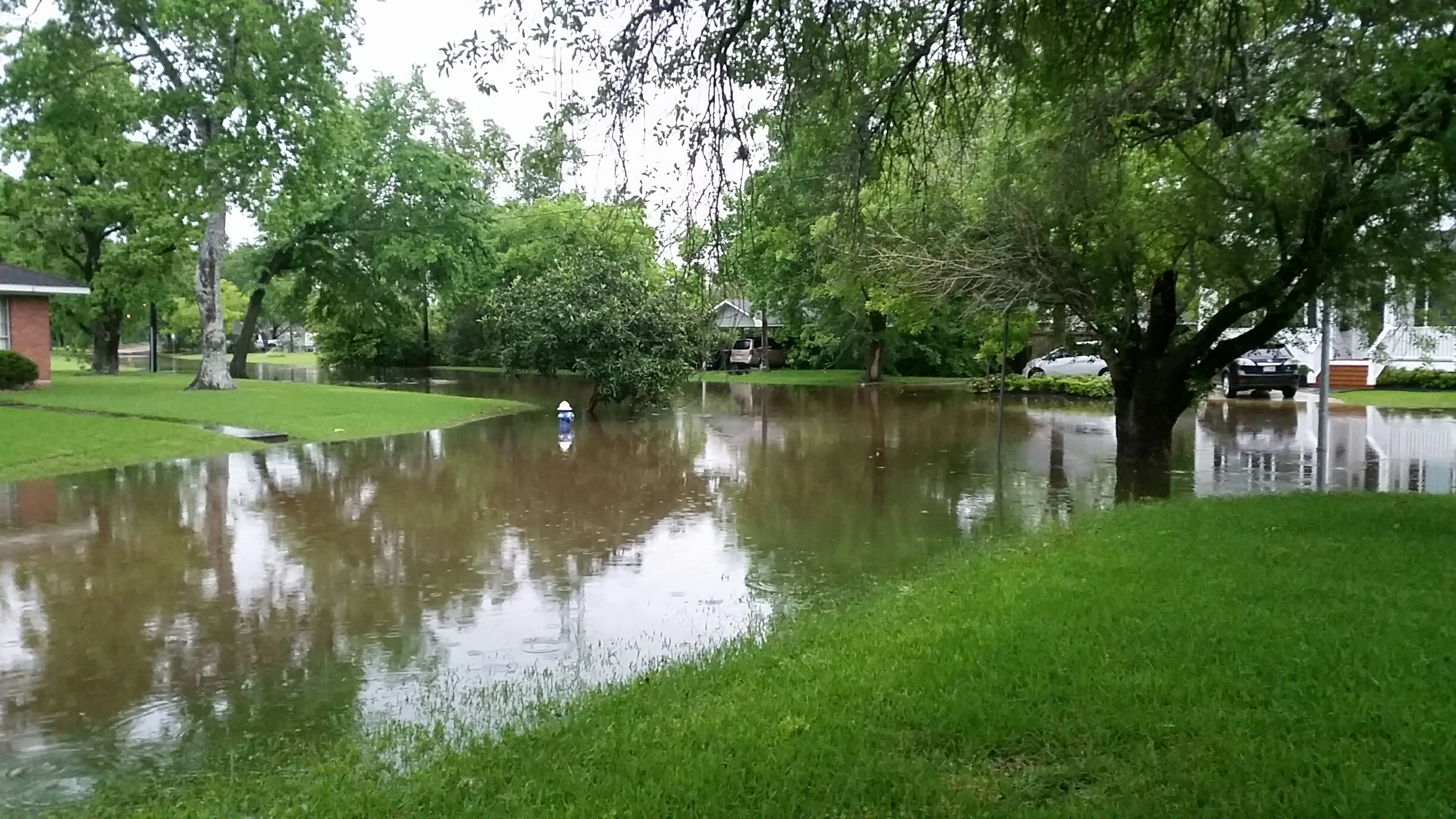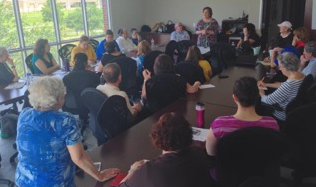
As the rains fell on April 18, the waters quickly began to take a devastating toll across Greater Houston. The numbers from the ”Tax Day”flood are overwhelming: Seven people died. 162 billion gallons of water collected across the Houston area. 4,000 homes were damaged, leaving thousands of people homeless and traumatized. Hopelessness began to set in.
And for the fourth time in just 12 months, the staff at Jewish Family Service (JFS) began to do everything they could to reinstill hope.
“JFS has a keen sense of responsibility to help clients and their neighborhoods deal with the trauma of flooding,” said Rachel Davis, chief development officer at JFS. “For a lot of them, it’s their second or third time dealing with their homes flooding. For others, this is their first experience losing their homes.”
 JFS helps victims with the post-flood needs we all think about — housing, short-term financial aid and case management to navigate families from recovery to resettlement. But the most difficult mission for JFS deals with an element we often never think about. It’s the journey to recover from the extensive trauma surrounding the entire event.
JFS helps victims with the post-flood needs we all think about — housing, short-term financial aid and case management to navigate families from recovery to resettlement. But the most difficult mission for JFS deals with an element we often never think about. It’s the journey to recover from the extensive trauma surrounding the entire event.
“One of our biggest concerns is the anxiety and emotional stress that individuals are going through in addition to the repair or rebuild process.” Davis said. “We provide individual and group counseling to flood survivors. After the April 18 flood, we added three ongoing support groups for adults and one for children.”
EHF’s recent $125,000 grant to JFS is helping the organization expand mental  health services to low-income clients across Southwest Houston, including flood-related services. The grant also supports a new intensive outpatient program and helps JFS add trauma training for the entire counseling staff. JFS leaders believe the added trauma expertise will help both clients and staff heal after disasters like the Tax Day flood.
health services to low-income clients across Southwest Houston, including flood-related services. The grant also supports a new intensive outpatient program and helps JFS add trauma training for the entire counseling staff. JFS leaders believe the added trauma expertise will help both clients and staff heal after disasters like the Tax Day flood.
“If we want to build stronger and healthier communities, then we need to address health from all angles,” said Elena Marks, EHF’s president and CEO. “That includes helping those facing a traumatic mental health crisis, especially those who can’t often afford to seek help. This grant is part of our effort to bolster the ability of dedicated nonprofits like JFS to have a bigger impact in the overall health of a community.”
So far, JFS has served 1,382 flood victims. The majority of those victims (64 percent) who were a family of three earned a household income of $50,225 or less.
“Our partnership with EHF is allowing us to strengthen components of the counseling program.”said Linda L. Burger, CEO of JFS, who also serves as the President of Houston’s Network for Behavioral Healthcare Providers. “This way we can positively impact our clients in southwest Houston, not only those whose homes were flooded, but also the hundreds we serve every year who have anxiety, stress and depression.”
JFS hopes to help these flood victims who were forced to start their lives over again, reach new levels of health and functioning with a better likelihood of long term stability.
“There is typically a three to five year recovery for families who experience flooding.”Davis said. “We want to remind those impacted that even after a family resettles and furniture is replaced, the long-term impact should be addressed to help survivors on their road to recovery.”
To learn more about JFS and its flood-related assistance, visit jfshouston.org.